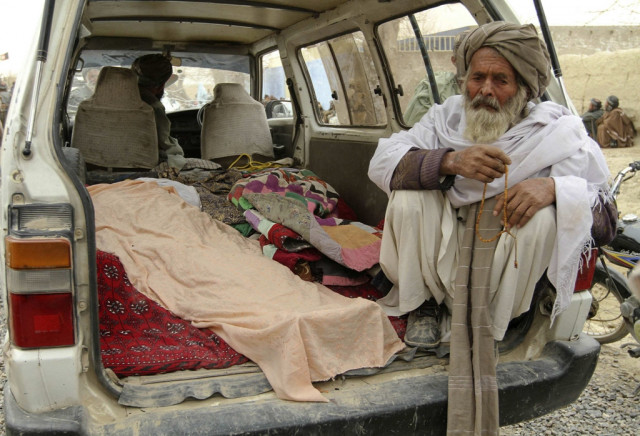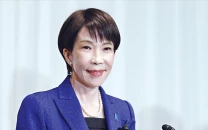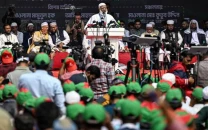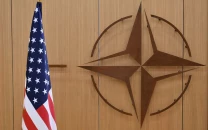Afghan Taliban say US must rebuild trust for talks: Report
Kandahar killings further strain talks.

The Taliban have suspended the nascent dialogue, blaming the United States for failing to deliver on a promise to transfer five of its leaders held by the US military in Guantanamo Bay.
The militant group later said actions such as the mass killing in southern Kandahar province two weeks ago had poisoned the atmosphere.
Syed Mohammed Akbar Agha, a senior commander and cousin of the Taliban's main negotiator, said the tentative secret discussions with the Americans to lay the ground for formal peace negotiations had only been suspended, not ended.
"It has been quite clear for the Taliban, for the government and also for the foreigners, that Afghanistan’s problems cannot be solved without negotiations," the black turbaned, bearded Agha said in an interview with Reuters in his Kabul home.
"The talks will definitely begin, but when it will begin, that depends on rebuilding trust and confidence," he said as a handful of aides sat on rugs counting prayer beads.
The face-to-face discussions have been shrouded in secrecy ever since they began in 2010 in Germany and in Arab countries.
They are meant to negotiate a political settlement for a costly and unpopular war that has dragged into its eleventh year.
The two sides appeared to have made progress late last year with an agreement on opening a Taliban political office in the Gulf state of Qatar, along with the proposed transfer from Guantanamo of the five prisoners to Qatari custody.
"The office had been agreed and they were very close to a deal on the release of prisoners one by one. Unfortunately, due to some circumstances, the atmosphere of mistrust has developed again," said Agha, whose cousin Tayeb Agha has led the talks.
"The Americans didn't stick to their promise about releasing prisoners. They were delaying; sometimes it was next day, then next week. They kept changing their position," he said.
The proposed transfer has also raised hackles in the US Congress, where politicians of both parties warn transferring the Taliban prisoners might somehow strengthen the insurgency.
The Pentagon is leading negotiations with the Qatari government on the conditions of that transfer, but no agreement has been reached on safeguards that would satisfy US worries about the senior Taliban slipping away.
MURDER STRAINS TALKS
The shooting in Kandahar, for which a US army staff sergeant has been charged with 17 counts of murder, put further strain on the peace process as public anger mounted, Agha said. Most of the dead were children and women.
He said it was disgraceful that the accused soldier had been flown to the United States instead of facing trial in Afghanistan.
The effort to seek reconciliation with the Taliban while building up Afghan national forces are the twin planks in the US strategy to hold the country together when the last NATO combat forces withdraw in 2014.
Agha, who has been involved in peace consultations within the Taliban and who spent five years in prisons in Pakistan and Afghanistan, offered a rare glimpse into the talks that so far have produced little but skepticism.
He said the next stage in the negotiations with the Americans would have been an agreement on regional ceasefires as confidence developed between the two sides.
"The plan is to have ceasefire province-by-province. It will start in the areas where the fighting is the most intense. These will be in the south. People will benefit from it. They are suffering the most."
It's not clear, however, what kind of a final political settlement the peace negotiators from the two sides have in mind, or indeed what role Taliban leader Mullah Omar might play in a future Afghanistan.
Agha said it was up to Afghans to decide whether they choose Mullah Omar as their leader or stick with President Hamid Karzai. "The people know this very well that under whose leadership there will be peace," he said.



















COMMENTS
Comments are moderated and generally will be posted if they are on-topic and not abusive.
For more information, please see our Comments FAQ